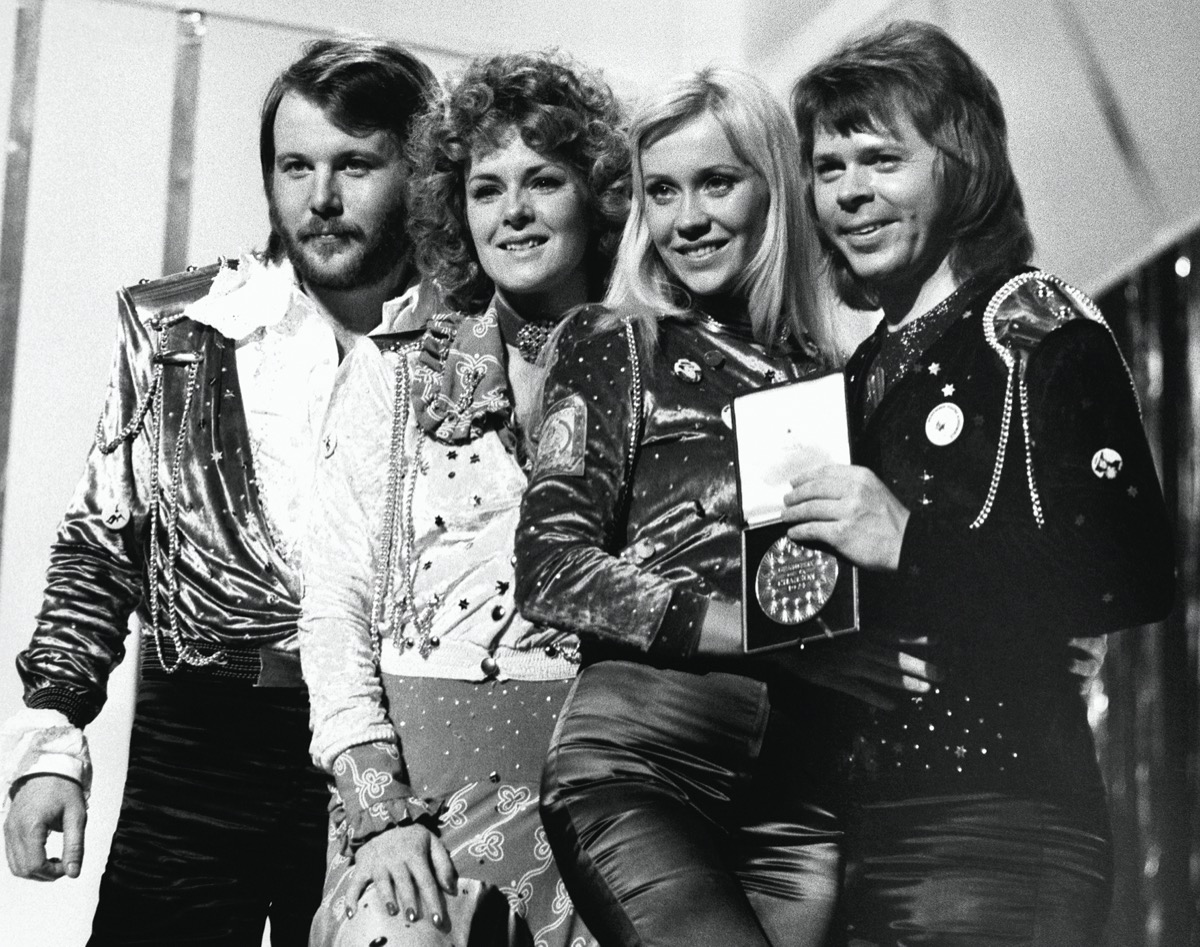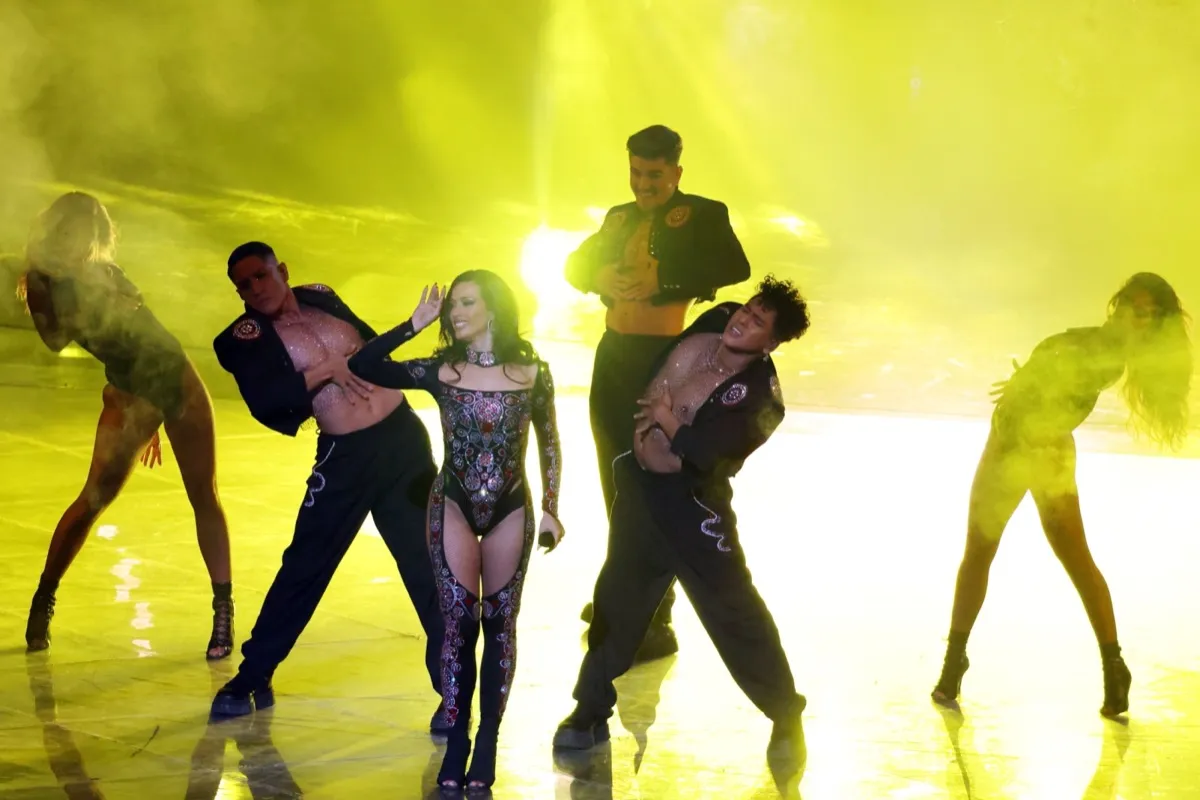Ah, Eurovision. That glorious time of year when Europe completely takes over Tumblr and everyone else is left wholly confused. But what is Eurovision, exactly? What does it really represent? And why are there so many ludicrously brilliant costumes?
In short, the Eurovision Song Contest is exactly what it sounds like. Countries in Europe (and Australia now, for some reason) send in an act with an original song to compete for the top prize. That top prize is not only dignity and pride, but also the chance to host the following year’s competition, as well as a glass trophy. No, there’s no financial incentive; in fact, if your country wins, hosting Eurovision next is going to cost an arm and a leg.
And yet, it’s a monumental tradition, a party, an annual cultural moment. Eurovision has been around for a lot longer than the internet—since 1956, to be precise—and over the years has only gotten bigger, bolder, and wackier. Eurovision, above all, is a celebration of joy, pride, creativity, and culture—with a few geopolitical and neighborly squabbles thrown in for fun.
The history of Eurovision
The very first Eurovision Song Contest was held on May 24, 1956. Seven nations competed in this first iteration: the Netherlands, Belgium, France, Switzerland, Germany, Luxembourg, and Italy. Austria and Denmark had unfortunately missed the deadline to enter, and the United Kingdom was too busy with a different competition.
Eurovision first began, however, not necessarily as a celebration of the continent’s cultural diversity, but as a technical experiment to push the boundaries of broadcasting television. What we take for granted now was a marvel back then—a show that was hosted live and broadcast across multiple countries in Europe at the same time.
The European Broadcasting Union (EBU) created the Eurovision Network for the exchange and production of common television programmes across Europe. The Eurovision Song Contest was born from an idea from Swiss journalist Marcel Bezençon, as well as RAI, the Italian national broadcasting organization, which had been staging its own national version of a song festival since 1951 in Sanremo and an international song festival in Venice in 1955.
This year, 67 years after the first Eurovision Song Contest, 37 individual nations will compete. The show has come a long way since its debut.
What happens during Eurovision?
The artists chosen to represent their countries are usually decided upon in one of three ways. A national broadcaster can decide to host a televised national selection, otherwise known as a “mini Eurovision.” A country can also choose to do an internal search, giving record labels and individual artists the chance to submit their work to the broadcaster directly. A Eurovision act can also be chosen using a combination of these methods; for instance, the broadcaster chooses an artist, and the song choice is left up to the public.
With so many countries participating in the competition, the structure of Eurovision has certainly changed since it first started. Nowadays, Eurovision is a week-long event, comprised of three live shows: two Semi-Finals, and the Grand Final. In this year’s Eurovision, 26 nations will compete in the Grand Final.
The winner is determined by a combination of public vote and jury vote. The jury for each nation is usually comprised of five music industry professionals from that country, and the public can vote online, via text, or over the phone. In the interest of fairness, the public and the jury cannot vote for their own country.
If you’ve never watched Eurovision, especially over the last few years, it’s hard to truly explain the chaos that ensues during the final tally. Countries that were in the running to win after the jury vote can suddenly find themselves on the dreaded right-hand side of the leaderboard if the public decides their acts aren’t interesting enough. In this case, “not interesting enough” is usually code for slow ballad, dull costumes, poor staging, little to no flame throwers, or zero dancing grandmas.
What should you expect from Eurovision?

The beauty of Eurovision is that there is no limit on creativity—though there are a few rules that acts need to follow. The songs must be original and cannot exceed three minutes in length, the lead vocals must be performed live (no lip syncing, hooray!), and a maximum of six performers can be on stage during any one performance.
Are there any other limits? No, not really! Entrants can choose to sing in English, their native language (these are usually well-received by the public), or a combination of different languages. It can be any genre, too. Pop, disco, hip-hop, opera, rock, death metal—Eurovision has heard it all.
A few of Eurovision’s notable past artists include the incomparable ABBA for Sweden, who won with “Waterloo” in 1974, Celine Dion (yes, really) who won for Switzerland in 1988, and Bonnie Tyler, who definitely did not win for the U.K. in 2013.
But the true beauty of Eurovision is the sheer creative camp madness that is unleashed year upon year. Intricate costumes, lavish sets, cardio-intense dance routines, and above all, the drama. Pianos have been set on fire, singers have lowered themselves into coffins, performers wore yellow wolf masks for the entire duration of their performance. These acts don’t always win (though sometimes they arguably should), but they represent the best part of Eurovision: the freedom of expression and the chance to just be who you are.
As such, it should be no surprise that Eurovision is an especially big hit with the LGBTQ+ community. Plenty of Eurovision stars have become modern queer icons, including Austria’s Conchita Wurst, who won in 2014, the Netherlands’ Duncan Laurence, who won in 2019, and members of the Italian band Måneskin, who won in 2021, just to name a few. The first openly transgender contestant, Dana International, won Eurovision in 1998, and the competition was, rightfully, never the same. Eurovision is, along with everything else, a celebration of queer identity and the LGBTQ+ community.
What about this year’s Eurovision?
Eurovision 2023 will be hosted by the EBU and BBC on behalf of 2022 winners Ukraine in the Liverpool Arena on May 9, May 11, and May 13. The U.K.’s entry last year, Sam Ryder’s “Space Man”, placed second overall.
The hosts of the Grand Final have been announced, and those who have followed Eurovision over the years (especially the U.K.’s coverage), will be glad to learn that Graham Norton will be presenting this year—though sadly, that does mean he’ll likely have to keep his hilariously scathing deadpan commentary to himself.
Joining Norton will be Hannah Waddingham of Ted Lasso fame, as well as pop star Alesha Dixon and Ukrainian musical artist Julia Sanina, who was a finalist on Ukraine’s version of Dancing With the Stars and used to be a judge on X-Factor Ukraine.
(featured image: Stefania D’Alessandro, Getty Images)










Published: Mar 14, 2023 03:24 pm